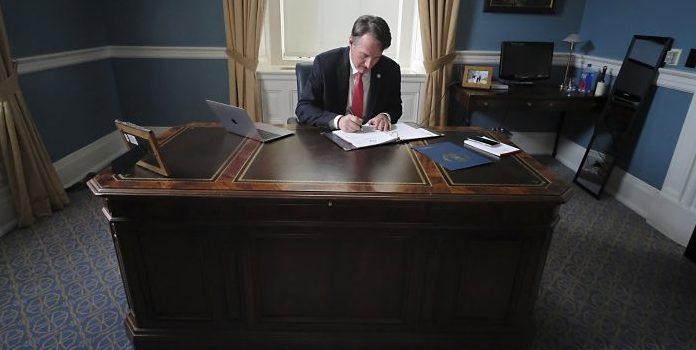(Tony Sifert, Headline USA) Following up on a pledge made during his remarkable 2021 campaign against Clinton lackey Terry McAuliffe, Virginia Gov. Glenn Youngkin has donated his first-quarter salary to the Virginia Law Enforcement Assistance Program, according to a press release.
Governor Glenn Youngkin Donates First-Quarter Salary
“I pledged to serve our Commonwealth without accepting a salary because I want to continue giving back to the Commonwealth and helping Virginians in every way I can.” – @GovernorVA @GlennYoungkinhttps://t.co/24Y4TdMUNt
— Rob Damschen (@RobDamschen) April 6, 2022
“I pledged to serve our Commonwealth without accepting a salary because I want to continue giving back to the Commonwealth and helping Virginians in every way I can,” Youngkin said in a statement.
“I have chosen to donate my salary to the Virginia Law Enforcement Assistance Program because of their important mission to assist law enforcement personnel and first responders who have undergone traumatic critical incidents.
“This reaffirms my ongoing commitment to support our men and women in law enforcement with mental health resources, training, and equipment to ensure that we are serving those that protect our communities across the Commonwealth,” Youngkin said.
VALEAP was founded in 2008 to help law enforcement and first responders deal with traumatic on-the-job crises like police-involved shootings, line-of-duty deaths, and other critical incidents, according to its website.
Youngkin is not new to charitable giving.
Fox News reported in November that the Virginia governor, whose net worth has been estimated by Forbes magazine to be in the realm of $440 million, has donated more than $50 million to charity in the last five years.
Before running for governor beginning in 2020, Youngkin was co-CEO of the private-equity firm the Carlyle Group.
During his campaign, Youngkin often clashed with the incumbent McAuliffe over the latter’s apparent support for leftists anti-police policies like an end to qualified immunity, money-wasting diversity initiatives, and the redirection of public funds from traditional to “community policing.”

